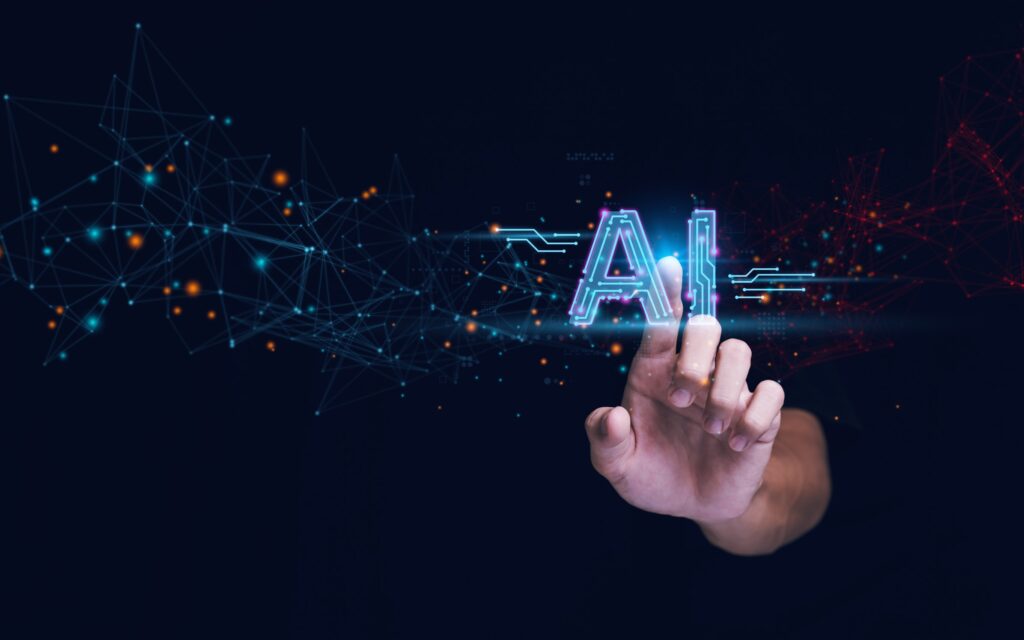Introduction
Emerging technologies are rapidly transforming the landscape of various industries, revolutionizing how we live, work, and interact with the world. Among these groundbreaking advancements, artificial intelligence (AI), robotics, and quantum computing stand out as the most promising and impactful. Each of these technologies offers unprecedented opportunities and challenges, pushing the boundaries of what is possible. This article delves into the latest developments in AI, robotics, and quantum computing, exploring their potential and the transformative effects they are having across different sectors.
The Evolution of Artificial Intelligence
Understanding AI
Artificial intelligence refers to the simulation of human intelligence in machines that are programmed to think and learn like humans. AI encompasses a variety of subfields, including machine learning, natural language processing, and computer vision, each contributing to its broad capabilities.
Recent Advances in AI
The field of AI has seen remarkable progress in recent years, driven by advances in machine learning algorithms, increased computational power, and vast amounts of data. Key developments include:
- Deep Learning: The advent of deep learning has revolutionized AI by enabling machines to process and analyze complex data, such as images, speech, and text, with unprecedented accuracy. Deep learning models, particularly convolutional neural networks (CNNs) and recurrent neural networks (RNNs), have achieved state-of-the-art performance in various applications.
- Generative Adversarial Networks (GANs): GANs have emerged as a powerful tool for generating realistic synthetic data. They consist of two neural networks, a generator and a discriminator, that work together to create high-quality images, videos, and other data types.
- Natural Language Processing (NLP): Advances in NLP have led to the development of models like GPT-4, which can understand and generate human-like text. These models are used in applications ranging from chatbots and virtual assistants to language translation and sentiment analysis.
Applications of AI
AI is being integrated into numerous industries, transforming processes and enhancing efficiency. Notable applications include:
- Healthcare: AI-powered systems are used for diagnosing diseases, predicting patient outcomes, and personalizing treatment plans. For example, AI algorithms can analyze medical images to detect conditions like cancer at an early stage.
- Finance: AI is revolutionizing the finance sector by enabling algorithmic trading, fraud detection, and risk management. AI-driven chatbots also provide customer support and financial advice.
- Manufacturing: In manufacturing, AI optimizes production processes, predicts equipment failures, and improves supply chain management. AI-powered robots and automation systems are increasing productivity and reducing costs.
The Rise of Robotics
Defining Robotics
Robotics involves the design, construction, operation, and use of robots, which are machines capable of carrying out complex tasks autonomously or semi-autonomously. Robotics integrates aspects of mechanical engineering, electrical engineering, and computer science.
Cutting-Edge Developments in Robotics
Recent advancements in robotics are pushing the boundaries of what robots can do. Key trends include:
- Collaborative Robots (Cobots): Cobots are designed to work alongside humans, enhancing productivity and safety in various settings. They are equipped with sensors and AI to adapt to human actions and environments.
- Humanoid Robots: Humanoid robots, such as Boston Dynamics’ Atlas, are becoming more sophisticated, capable of performing tasks that require human-like dexterity and agility. These robots have potential applications in areas like search and rescue, healthcare, and customer service.
- Swarm Robotics: Inspired by the collective behavior of social insects, swarm robotics involves coordinating large groups of robots to work together on tasks. This approach is useful in applications like environmental monitoring, agriculture, and disaster response.
Applications of Robotics
Robotics is being deployed across various industries, enhancing capabilities and efficiency. Notable applications include:
- Healthcare: Robots are used for surgeries, rehabilitation, and patient care. Surgical robots, like the da Vinci system, enable minimally invasive procedures with high precision.
- Logistics and Warehousing: Autonomous robots are transforming logistics by automating tasks such as sorting, packing, and transporting goods. Companies like Amazon and Alibaba use robots to streamline warehouse operations.
- Agriculture: Agricultural robots, or agribots, are revolutionizing farming by automating tasks like planting, harvesting, and monitoring crop health. These robots improve efficiency and reduce the need for manual labor.
The Quantum Leap in Computing
Understanding Quantum Computing
Quantum computing leverages the principles of quantum mechanics to perform calculations that are beyond the capabilities of classical computers. Quantum bits, or qubits, can exist in multiple states simultaneously, enabling quantum computers to solve complex problems much faster than traditional computers.
Recent Breakthroughs in Quantum Computing
Quantum computing is still in its early stages, but recent breakthroughs indicate significant progress:
- Quantum Supremacy: In 2019, Google claimed to have achieved quantum supremacy with its quantum processor, Sycamore, performing a specific calculation faster than the most powerful supercomputers.
- Quantum Algorithms: Researchers are developing quantum algorithms that promise to revolutionize fields like cryptography, materials science, and optimization. Shor’s algorithm, for instance, can factor large numbers exponentially faster than classical algorithms, posing a threat to current encryption methods.
- Quantum Hardware: Advances in quantum hardware, including more stable qubits and error correction techniques, are bringing practical quantum computing closer to reality. Companies like IBM, Microsoft, and Rigetti are leading the way in developing scalable quantum systems.
Applications of Quantum Computing
While still in development, quantum computing holds immense potential for various applications:
- Drug Discovery: Quantum computers can simulate molecular interactions at an unprecedented scale, accelerating the discovery of new drugs and materials. This capability could lead to breakthroughs in medicine and materials science.
- Cryptography: Quantum computing has the potential to break current cryptographic systems, but it also offers new methods for secure communication through quantum cryptography, ensuring data privacy and security.
- Optimization Problems: Quantum computing can solve complex optimization problems more efficiently than classical computers. This capability is valuable in industries like logistics, finance, and energy, where optimal solutions can lead to significant cost savings and efficiency gains.
FAQs
What is artificial intelligence (AI)?
Artificial intelligence (AI) is the simulation of human intelligence in machines, enabling them to perform tasks that typically require human intelligence, such as learning, reasoning, and problem-solving.
How are robots used in healthcare?
Robots in healthcare are used for surgeries, patient care, rehabilitation, and logistics. They enhance precision in surgical procedures, assist in patient mobility and therapy, and streamline hospital operations.
What is quantum supremacy?
Quantum supremacy is the point at which a quantum computer can perform a specific calculation faster than the most powerful classical supercomputers. Google achieved this milestone with its Sycamore processor in 2019.
What are collaborative robots (cobots)?
Collaborative robots (cobots) are robots designed to work alongside humans in a shared workspace. They are equipped with sensors and AI to safely and effectively interact with human coworkers.
How does quantum computing impact cryptography?
Quantum computing can potentially break current cryptographic systems by efficiently solving complex mathematical problems. However, it also offers new methods for secure communication through quantum cryptography.
What are generative adversarial networks (GANs)?
Generative adversarial networks (GANs) are a class of AI models that consist of two neural networks, a generator and a discriminator, which work together to create realistic synthetic data, such as images and videos.
Conclusion
The rapid advancements in AI, robotics, and quantum computing are reshaping industries and driving innovation. These emerging technologies offer immense potential, from enhancing healthcare and manufacturing to revolutionizing cryptography and drug discovery. As these technologies continue to evolve, they will unlock new possibilities and transform our world in ways we can only begin to imagine.


